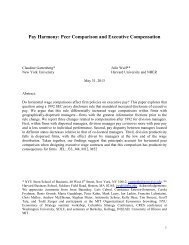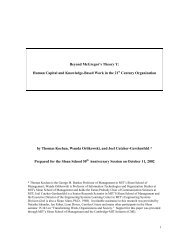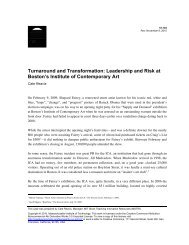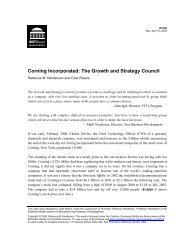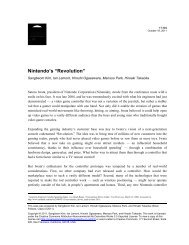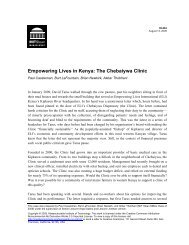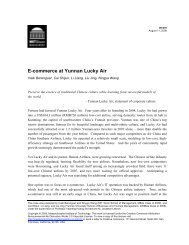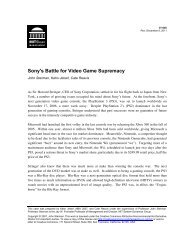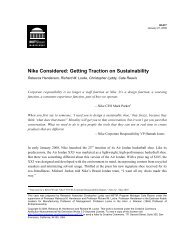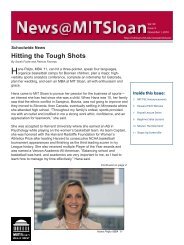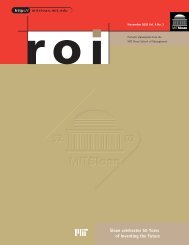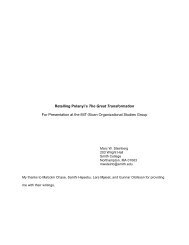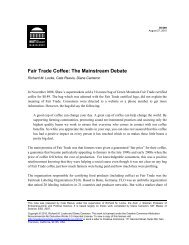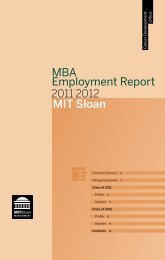Understanding earnings quality - MIT Sloan School of Management
Understanding earnings quality - MIT Sloan School of Management
Understanding earnings quality - MIT Sloan School of Management
You also want an ePaper? Increase the reach of your titles
YUMPU automatically turns print PDFs into web optimized ePapers that Google loves.
the definition <strong>of</strong> fraud in SAS No. 99. In some cases, however, the SEC alleges that managers were<br />
negligent (i.e., “reckless in not knowing” <strong>of</strong> the misstatement).<br />
Because the AAER sample includes cases <strong>of</strong> egregious and intentional misstatements (i.e.,<br />
<strong>earnings</strong> management), it is likely to have a lower Type I error rate than samples identified using<br />
other methods such as abnormal accruals models. One issue <strong>of</strong> concern, however, is the potential for<br />
selection bias related to how the SEC identifies the misstating firms. Given a constrained budget,<br />
the SEC may not pursue cases that involve ambiguity and that it does not expect to win. The SEC<br />
states that it will scrutinize firms that restate <strong>earnings</strong> because the firm has already admitted to<br />
making a mistake. The SEC also states that it is concerned with market impact because their role is<br />
to protect investors. Therefore, they scrutinize firms with large market capitalizations as well as IPO<br />
firms and firms raising public debt or equity.<br />
Determinants <strong>of</strong> AAERs<br />
Managerial compensation: Dechow et al. (1996) and Beneish (1999) do not find an association<br />
between the existence <strong>of</strong> an <strong>earnings</strong>-based bonus plan and the likelihood <strong>of</strong> accounting<br />
manipulations. Johnson, Ryan, and Tian (2009) find that AAER managers face stronger incentives<br />
from unrestricted stocks than those <strong>of</strong> control firms, however, Erickson, Hanlon, and Maydew<br />
(2006) and Armstrong, Jagolinzer, and Larcker (2009) do not find a positive association between<br />
stock-based incentive compensation and the likelihood <strong>of</strong> accounting fraud. Dechow et al. (1996) do<br />
not find abnormally higher stock sale activities for the <strong>of</strong>ficers and directors <strong>of</strong> the AAER firms<br />
during the manipulation years, but two subsequent studies find that insiders <strong>of</strong> fraud firms tend to<br />
engage in more stock sales during the manipulation period (Summers and Sweeney, 1998; Beneish,<br />
1999).<br />
63



